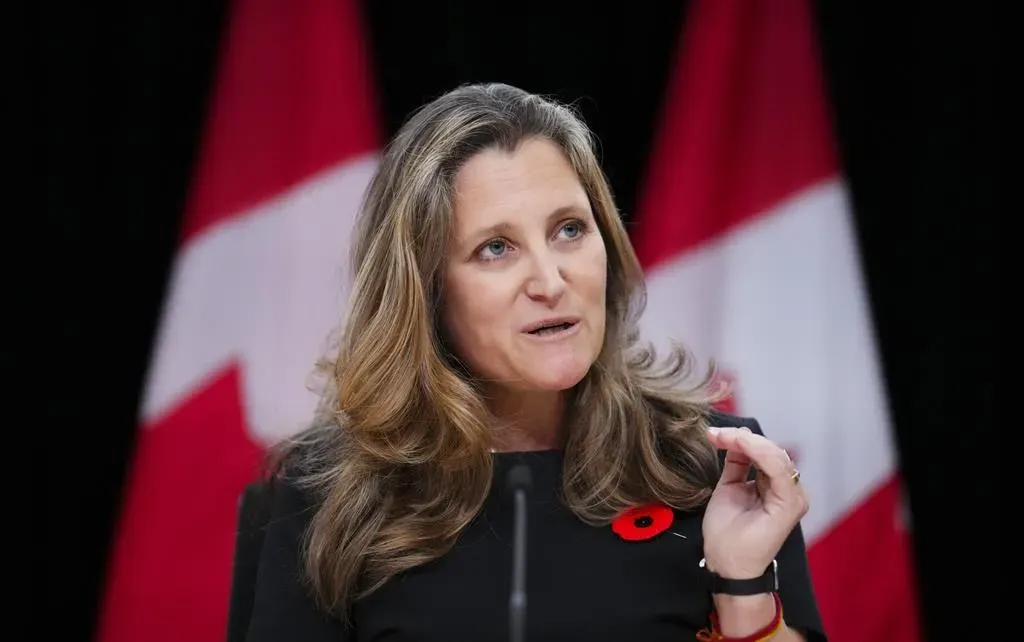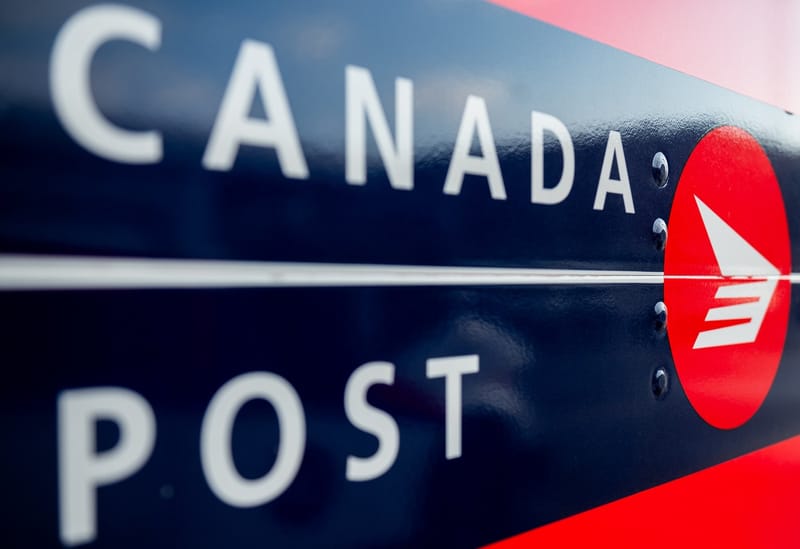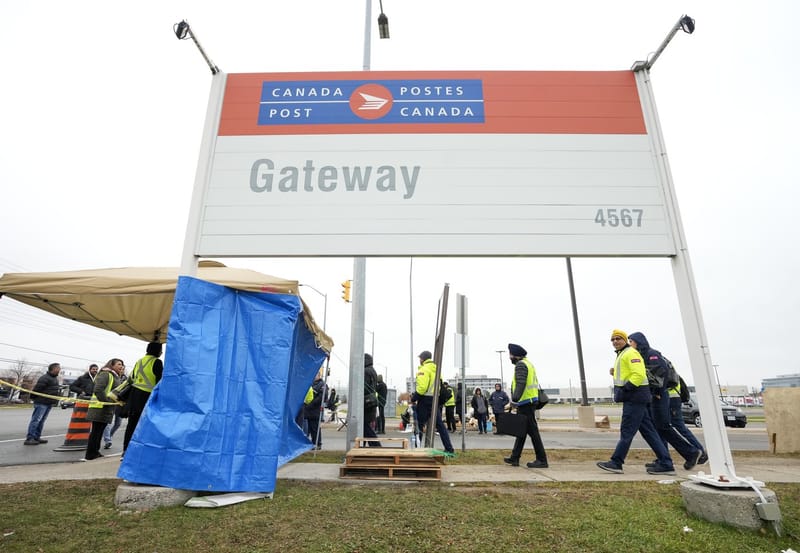Concerns about Mexico’s trade policies toward China ‘legitimate’: Freeland
Deputy Prime Minister Chrystia Freeland said Wednesday she shares what she called “legitimate” concerns about Mexico’s trade policies regarding China.

Deputy Prime Minister Chrystia Freeland expressed her support on Wednesday for "legitimate" concerns regarding Mexico’s trade policies with China and emphasized that North American countries should present a unified stance on tariffs for Chinese vehicles.
As chair of Canada’s newly re-established committee on Canada-U.S. relations, Freeland didn’t directly comment on Ontario Premier Doug Ford’s recent suggestion to exclude Mexico from free trade discussions over this issue. However, she acknowledged having “some sympathy” for his concerns, which U.S. president-elect Donald Trump has also raised.
Freeland noted, “I have been hearing for some time from those close to the incoming Trump administration, as well as American business leaders and members of the outgoing Biden administration, about concerns regarding Mexico’s economic relationship with China not aligning with how Canada and the U.S. are approaching it.” She added, “I think those are legitimate concerns for our American partners and neighbours to have. Those are concerns that I share.”
Trump and Ford have accused Mexico of enabling Chinese companies to bypass Canada-United States-Mexico Agreement (CUSMA) regulations by producing vehicles and parts in Mexico and exporting them to the U.S. and Canada. This year, Canada joined the U.S. in applying a 100-percent tariff on imported Chinese electric vehicles, along with a 25-percent tariff on Chinese steel and aluminum. Canada is currently considering expanding tariffs to additional Chinese imports. Mexico, however, has yet to impose similar tariffs on Chinese vehicles or components.
Ford recently argued that if Mexico does not adopt comparable tariffs, Canada and the U.S. should explore a bilateral free trade agreement excluding Mexico, stating, “If Mexico wants a bilateral trade deal with Canada, God bless them. But I’m not going to be drawn down with these cheap imports taking men and women’s jobs from hardworking Ontarians.”
Freeland’s comments signal stronger support than Prime Minister Justin Trudeau’s response on Tuesday. While Trudeau didn’t address Ford’s stance directly, he referenced efforts to align with Mexico on shared trade goals. “We’re going to continue to work with partners like the United States, and hopefully Mexico as well, to make sure that we are united in our desire to protect good jobs, as well as environmental and labour concerns,” he said.
Freeland underscored Canada’s alignment with the U.S. on Chinese import policies, calling Canada “the only country in the world which is fully aligned with the United States today when it comes to economic policy vis-a-vis China.”
Trump has announced his intention to renegotiate CUSMA during its scheduled review in 2026 to address these concerns with Mexico. China’s automakers, including BYD, one of the world’s largest, have been exploring manufacturing opportunities in Mexico, where several American automakers already produce vehicles at a lower cost. There is concern that Chinese companies could leverage CUSMA’s duty-free import rules, supplying Chinese cars to North American markets while sidestepping U.S. and Canadian tariffs.
CUSMA’s rules of origin mandate higher levels of North American components in vehicles sold across the three countries compared to its predecessor, NAFTA. Trump has expressed concern that China is attempting to circumvent these rules by routing Chinese parts through Mexico.
In response to Mexican immigration policy, Trump has also proposed imposing 25-percent tariffs on all Mexican imports unless Mexico addresses migration at the U.S. border. During his campaign, Trump further threatened tariffs as high as 200 percent on all vehicles imported from Mexico, and penalties up to 1,000 percent on Chinese companies operating in Mexico to bypass CUSMA regulations.
Mexico has pledged to respond with its own tariffs on American imports if Trump imposes such measures, with the country’s economic minister cautioning that such a move could negatively impact North America’s economy.





